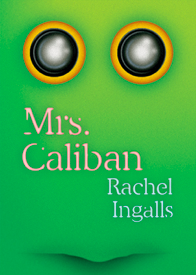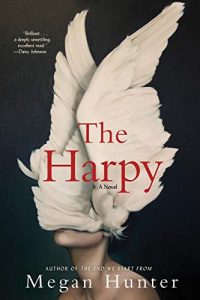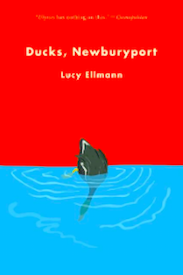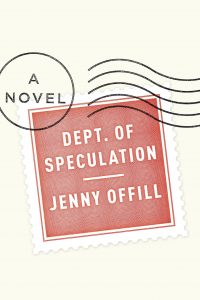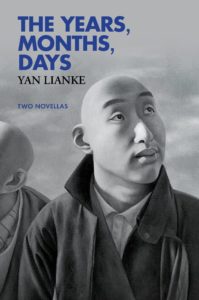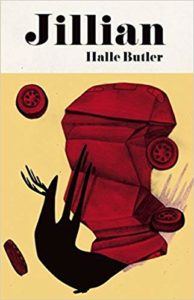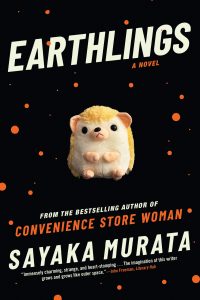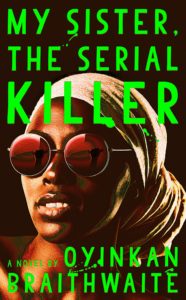8 fictional housewives who have snapped (in a fun way).
When I was a kid, I thought that by the time I had reached adulthood, I would be a seasoned cook. It seemed inevitable that I would someday have to whip up a delicious five-course meal using whatever I had on hand, that I would know what the tiny whisk is for, and that I would own an adorable apron that would somehow never get stained. Think: Donna Reed in her string of pearls and heels taking a casserole out of the oven. Yes, it’s silly and sexist. But I thought I would eventually have to take over the making of Thanksgiving dinner, complete with perfectly-cooked turkey, mashed potatoes, cranberry sauce made from scratch.
And then I found a new role model: housewives who have straight-up snapped. (Reader, my contribution to this year’s Thanksgiving dinner is the same as it is every year: stovetop stuffing.) The women in these novels have had enough. They are breaking free of the boxes they’ve been forced into. They experiment with narrative. They experiment, romantically, with sea monsters. They would like you to make your own goddamn sandwich.
*
Mrs. Caliban of Rachel Ingalls’ Mrs. Caliban
In Rachel Ingalls’ Mrs. Caliban, the titular character (also called Dorothy) is a lonely housewife, mourning both the loss of her child and unborn baby. Her husband cheats. Repeatedly. She mourns this, too. And then one day, she hears that a potentially dangerous monster has escaped a local research laboratory. Wouldn’t you know it! He appears at her door. His name is Larry, and they fall in love. (Does this sound vaguely familiar? Have you seen The Shape of Water, in which a similarly lonely woman falls for a sea monster?) Nothing says you’ve lost it quite like an affair with a sea monster! But that’s the genius of Rachel Ingalls’ dark gem of a novel: We understand Dorothy’s sorrow, her solitude. We see that her husband is a monster of a different kind. We, too, love Larry. We just want Dorothy to be happy. We cheer them on the whole time. (After this, I would also recommend her recently reissued feminist novel, Binstead’s Safari, about a woman who suddenly finds the courage to take charge of her life while her husband is researching lions.)
Lucy of Megan Hunter’s The Harpy
At the beginning of The Harpy, we learn that Lucy’s husband is having an affair. They come to a sinister agreement: she may hurt him three times, and then they’re even. This is a gleefully deranged novel about scorekeeping and the souring of a marriage. What makes it different from any other story you’ve read about an affair is that it’s not about a love being salvaged. We don’t learn much about their actual relationship. We learn next to nothing about the husband. He’s a shadow of a person, something in the periphery of a book whose gaze falls upon one woman’s descent, her transformation from wife to woman scorned to something other-worldly.
The Ohio housewife of Lucy Ellmann’s Ducks, Newburyport
Ducks, Newburyport—the dark horse shortlisted for last year’s Booker Prize—is almost one thousand (1,000!) pages full of one woman’s stream of consciousness. I mean, it’s every fleeting thought that crosses her mind in an unstoppable torrent that’s basically one long, winding sentence. We see her concerns about the state of the country, her ongoing pangs of grief about her parents, her love for her husband, her to-do list for preparing dinner, her fears regarding her children. It’s a small joy to swing from thought to thought with her, to try to understand the leaps she makes. What’s more alarming: watching her police her own thoughts. It’s a fascinating social critique, the way she skitters away from certain subjects, even in her own mind. Does this sound confusing? Rest assured: Lucy Ellmann has a steady hand, masterfully guiding you through the rabbit hole without you even noticing. The genius here is in her ability to make us recall something from pages and pages ago; her phrasing is so precise that when she briefly references something, the reader knows immediately what she’s talking about. It makes you feel like you really are swimming in her subconscious, and really, what’s more maddening than being surrounded by someone’s inner-most thoughts that way?
The Wife of Jenny Offill’s Dept. of Speculation
There’s something to be said for the character known only as “the wife.” (Noticing a pattern here?) She’s got a finicky baby, a marriage teetering on collapse, and deserted hopes and dreams. No, her situation isn’t novel, but the way she makes sense of it is. Dept. of Speculation is a fragmented mind at work. (In the years since its publication, a comparison to Dept. of Speculation has become a sort of shorthand for wry humor and brief, cutting bites of text.) It’s essentially a collection of everyday anecdotes, small frustrations and surprising moments of softness culled from her domestic life. Reading it is like watching a snowball gaining momentum as it rolls down a very steep hill.
Fourth Wife You of Yan Lianke’s The Years, Months, Days
In Yan Lianke’s fable-like novella “Marrow,” Fourth Wife You’s husband has died, and she’s left to care for their four mentally-disabled children. Then she discovers that a soup made of bone marrow can “cure” them and prevent the genes from being passed on to future generations. So what does she do? She serves them soup made from the bones of her deceased husband, naturally. And when there’s no more of that? Well, let’s just say this is a darkly fascinating story about an extreme desire to meet society’s expectations of “normal” and the the lengths a mother will go to for her children.
Jillian of Halle Butler’s Jillian
Jillian is a housewife without a husband. She’s a single mother, the receptionist at a doctor’s office, an aspiring dog owner (?), and a future website coding business owner (???). She’s got a relentlessly sunny disposition, despite her mounting credit card bills and outstanding traffic tickets. The mental acrobatics she uses to justify even the smallest of purchases feels very relatable (this, an alarming realization, dear reader). She is the personification of the This Is Fine dog meme. The line between optimism and self-delusion wears thin.
Natsuki of Sayaka Murata’s Earthlings
Natsuki doesn’t quite fit in to the society she calls “a baby-making factory.” She doesn’t want to be a cog in this machine. Looking at the world through her eyes is a fascinating exercise in defamiliarization. (Apartment complexes are “nests.”) Eventually, pressured by her family and cultural expectations, she enters into a platonic marriage with a man who shares her disinterest in romance and the roles they’re supposed to play in society. So, not your typical housewife, but on the surface and to all of her friends and family, she has finally become a part of the baby-making factory. Right? Wrong. Eventually, Natsuki and her husband flee society and, well, in the epitome of straight-up snapping, let’s just say there’s cannibalism.
Ayoola of Oyinkan Braithwaite’s My Sister, the Serial Killer
Ayoola is the favorite sister, the beautiful one, the woman that men can’t help but dote on. She doesn’t actually become anyone’s housewife in this novel, so I’m using the term loosely because I wanted to include this delightfully deranged trip. The vibe is similar! Because before she makes it down the aisle, Ayoola just has a funny habit of, you know, murdering every single one of her boyfriends, which I think entitles her to be on this list.



